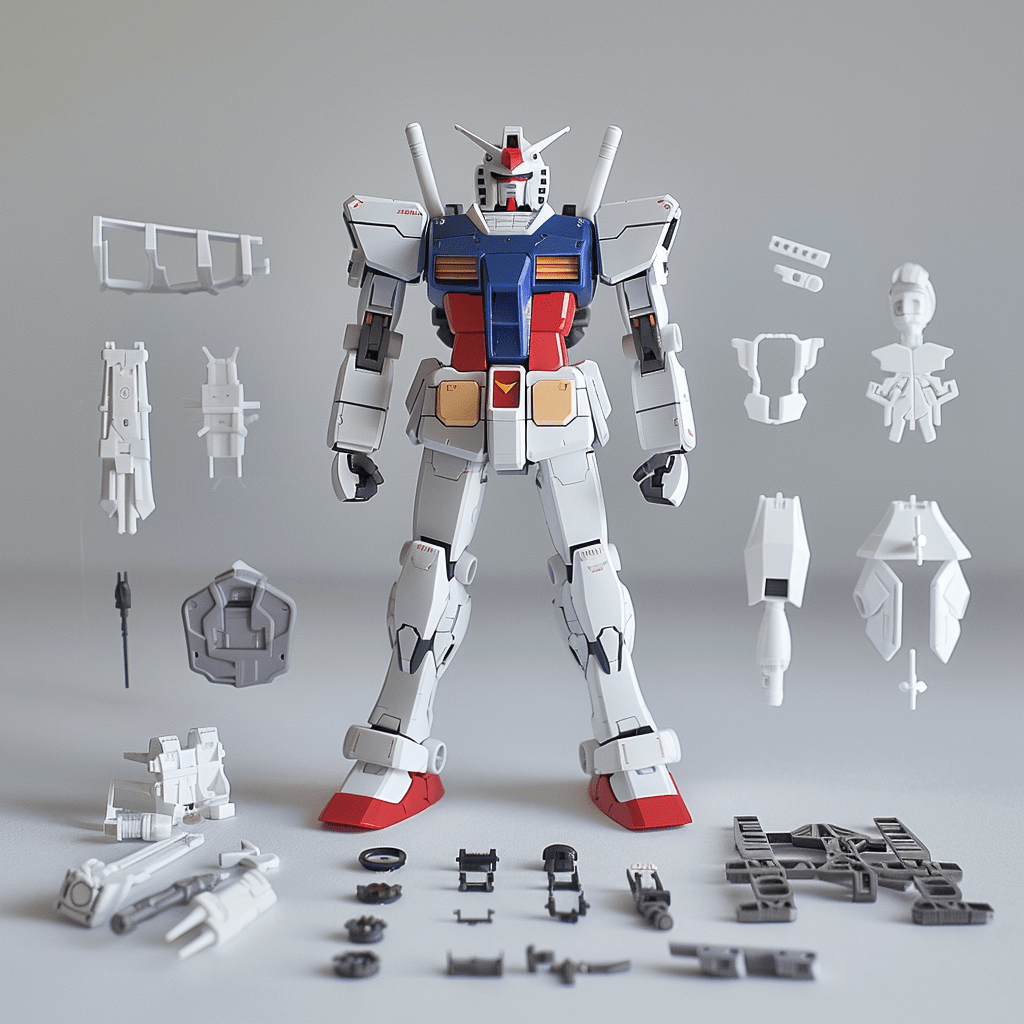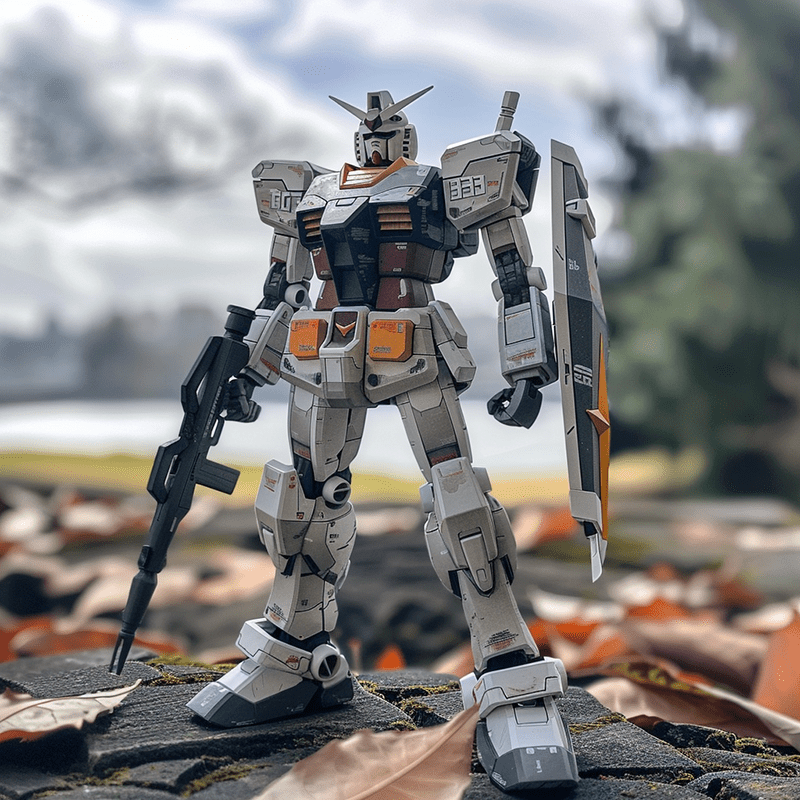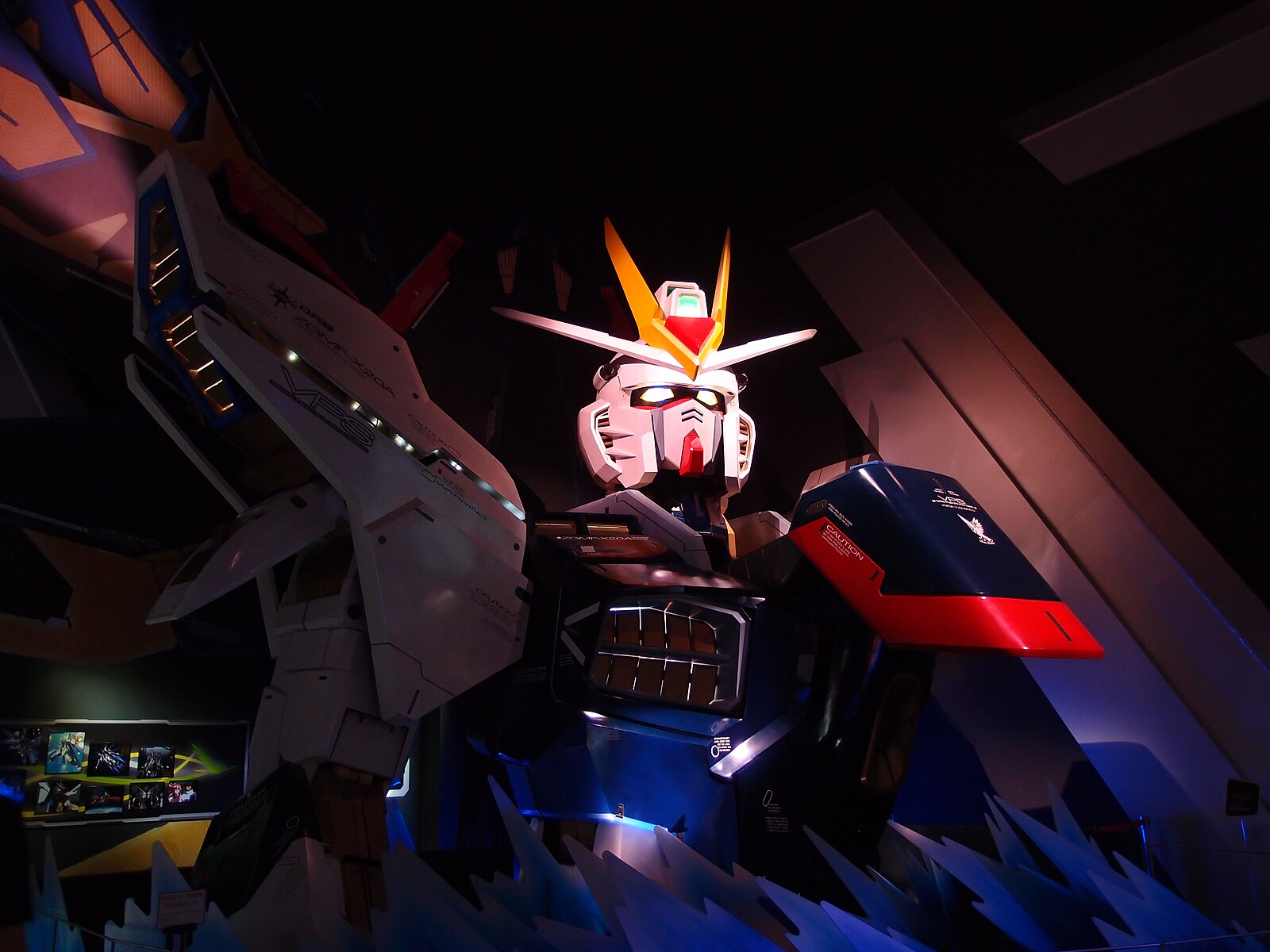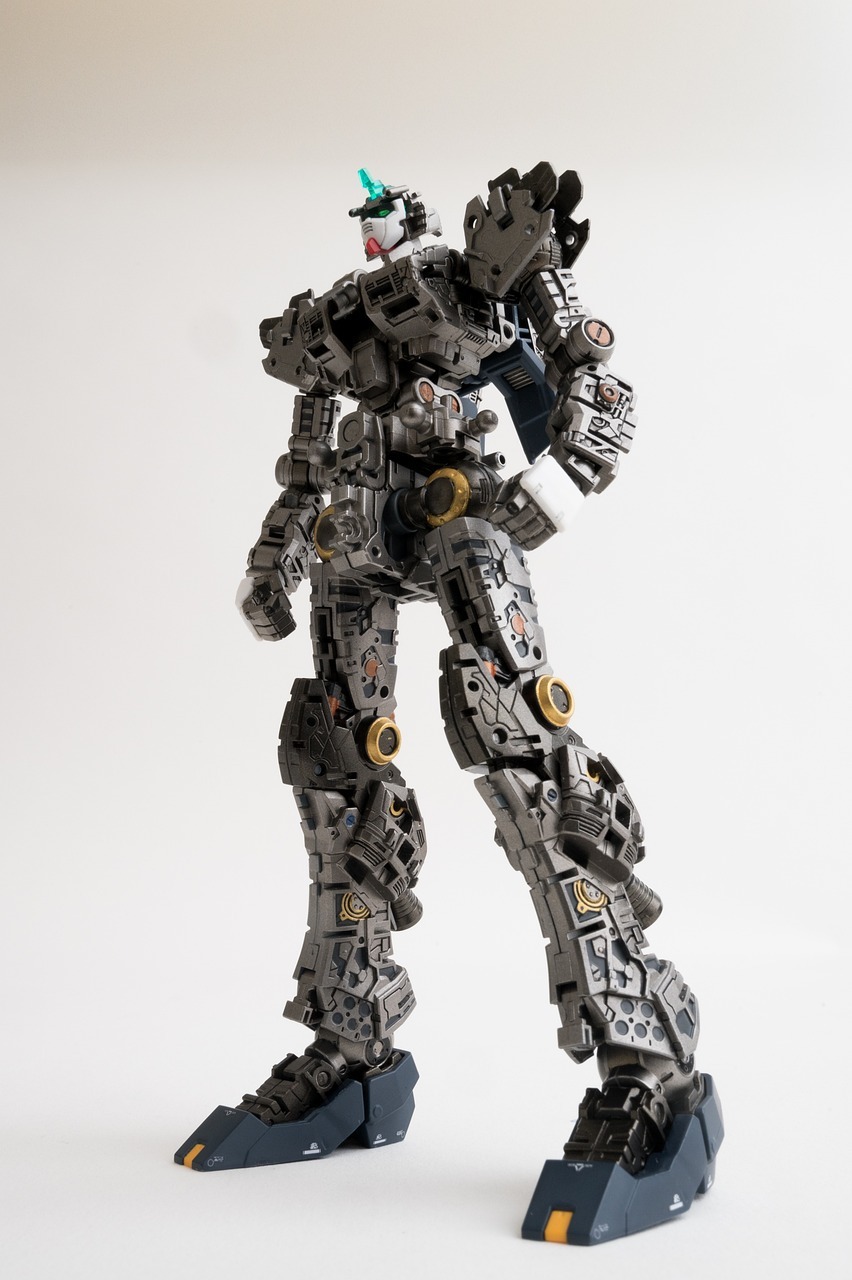What Is Bandai Famous For?
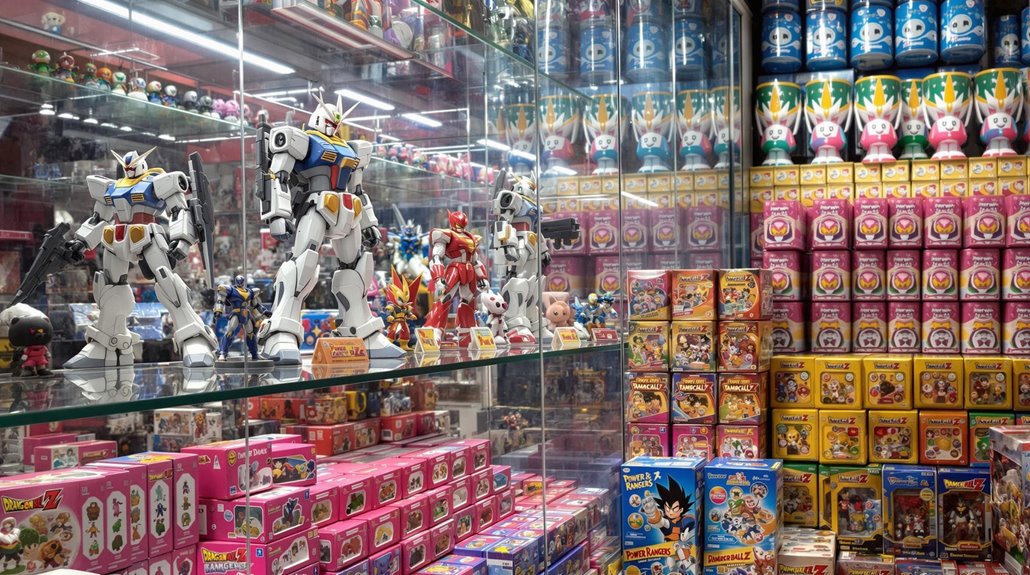
Bandai's become famous as Japan's dominant toy maker through pioneering creations that changed entertainment forever. You'll recognize their most influential products: Gundam model kits, Power Rangers merchandise, and virtual pets like Tamagotchi and Digimon. They've excelled at turning beloved characters into high-quality toys and collectibles while revolutionizing the mecha genre. Their impact extends beyond toys into gaming, anime, and digital entertainment - there's much more to their story than meets the eye.
The Birth and Evolution of a Japanese Toy Giant
Founded in 1950 by Naoharu Yamashina, Bandai began as a small toy wholesaler in post-war Japan before growing into one of the world's largest toy and entertainment companies. You'll find Bandai's early success came from creating affordable Japanese toys during Japan's economic recovery, which helped establish it as the leading toy company of Japan.
In the 1960s and 1970s, Bandai expanded into toy manufacturing, introducing innovative Plastic Model kits that captured children's imaginations. The company's breakthrough came in the 1980s and 1990s with the massive success of Power Rangers, adapted from Japan's Super Sentai series. Their action figures dominated the global market, setting new standards for quality and design. Today, you'll recognize Bandai as a powerhouse that's transitioned from a humble wholesaler into an entertainment empire. The company's cultural impact reached new heights with their Mobile Suit Gundam franchise, which revolutionized the mecha genre and became a cornerstone of Japanese popular culture.
Iconic Toy Lines That Shaped Generations
Throughout its evolution into an entertainment empire, Bandai's most enduring legacy lies in its iconic toy lines that defined childhoods worldwide. When you think of Bandai, you'll likely recall the pioneering Gundam model kit series that launched in 1980, revolutionizing the hobby market and creating a global phenomenon.
You might also remember how Power Rangers took the world by storm in the 1990s, becoming a cultural sensation that continues to excite fans today. The company's innovation in virtual pets changed playtime forever, with Digimon offering digital companions in 1997 and Tamagotchi creating an international craze that captured millions of hearts.
These toy lines weren't just products - they became cultural touchstones that reshaped entertainment and created lasting memories for generations of fans. The massive success of Kunio Okawara's designs helped establish Gundam's mobile suits as believably realistic war machines, setting a new standard for mecha aesthetics.
Gundam's Revolutionary Impact on Pop Culture
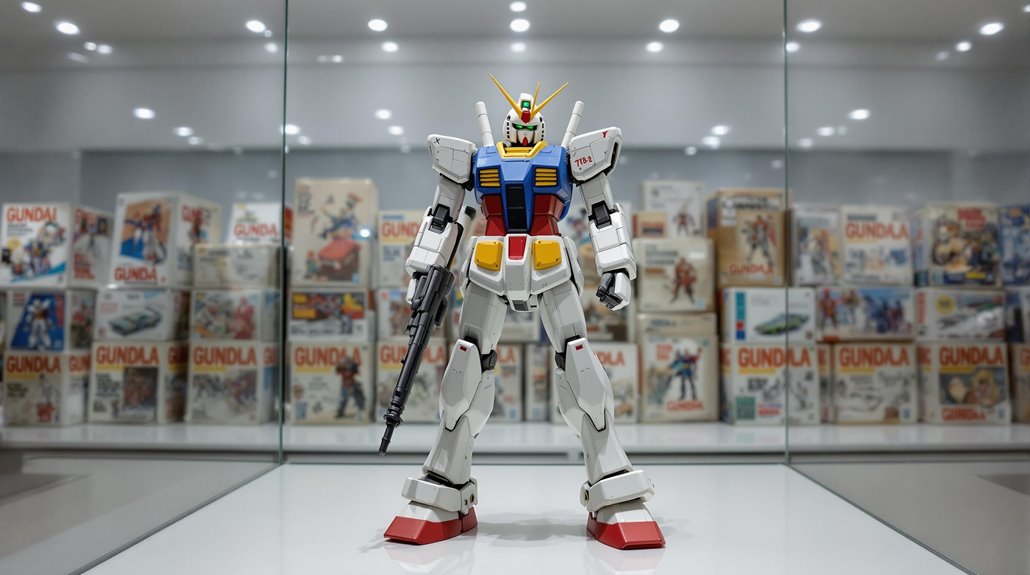
When Bandai launched the Gundam franchise in 1979, few could have predicted its seismic impact on global pop culture. The series revolutionized the mecha genre and transformed Bandai Namco into a powerhouse of Japanese entertainment.
You'll find Gundam's influence everywhere, from the intricate model kits that have become a beloved hobby worldwide to successful video games that continue to enthrall players.
The franchise's cultural significance runs so deep that you can witness life-sized Gundam statues towering over Japanese cities. Through its expert blend of detailed storytelling and merchandising, Bandai has turned Gundam into more than just an anime series - it's become a cultural phenomenon that spans generations.
The company's extensive range of Gundam products continues to drive its dominance in the toy and entertainment markets.
The franchise's groundbreaking approach to real robot anime helped establish a new direction for the entire mecha genre.
Strategic Partnerships and Licensed Properties
Beyond its original properties, Bandai has built an impressive empire through strategic partnerships with major entertainment franchises. As a strategic business unit of the Bandai Namco Group, the Japanese company has established itself as a global leader in toy licenses and merchandise. You'll find Bandai's influence across popular franchises like Power Rangers, Kamen Rider, and Digimon.
What makes Bandai stand out is its ability to convert beloved characters from anime, manga, and video game developer partnerships into high-quality toys and collectibles. Through merger activities and worldwide expansion, the company has created distribution networks throughout North America, Europe, and Asia. This strategic approach has helped Bandai maintain its position as a dominant force in the global toy industry while continuing to secure impactful licensing agreements with major entertainment properties.
Gaming Legacy and Digital Entertainment
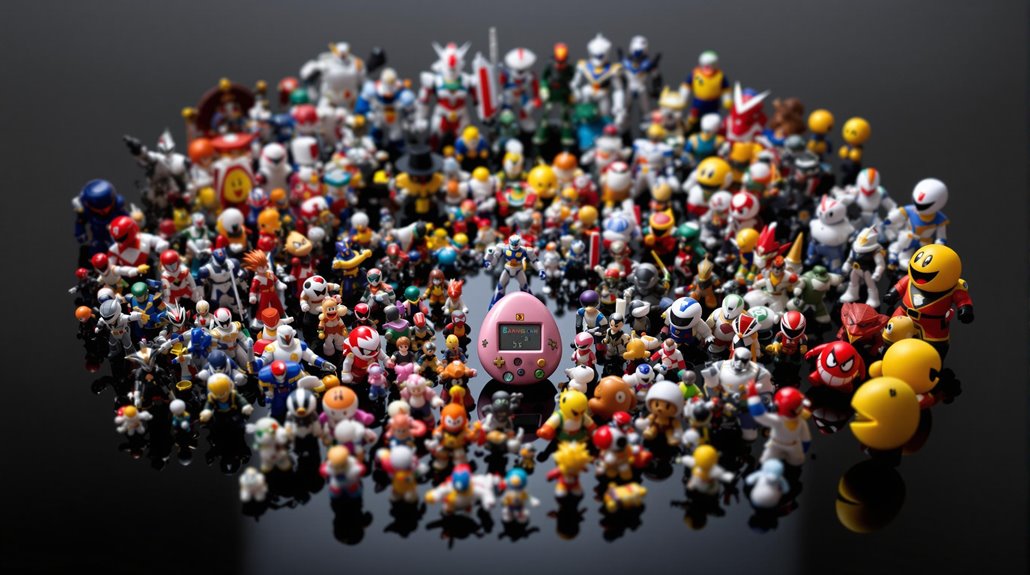
Bandai's trek into gaming began in 1985 as a third-party developer for Nintendo's Family Computer, marking the start of its influential presence in digital entertainment. The Company quickly established itself by creating successful video game adaptations of popular properties while developing its own gaming platforms like the WonderSwan handheld and Playdia.
Through strategic moves like acquiring Coreland and revamping it into Banpresto, Bandai strengthened its position in the arcade game market. You'll find the Company's influence extended to publishing games in international markets, particularly handling Street Fighter II's UK release on Super Nintendo.
Before becoming part of Bandai Namco Holdings, the toy manufacturer successfully bridged the gap between traditional entertainment and digital gaming by leveraging its extensive library of licensed properties, especially anime and manga titles.
Global Market Expansion and International Success
Three strategic moves defined the company's rise to global prominence: establishing Bandai America in 1978, securing international licenses, and opening subsidiaries across key markets worldwide.
As Bandai America Inc. established its foothold in the United States, the company aggressively expanded into Europe, Mexico, and Indonesia. You'll find Bandai Namco's influence has grown exponentially through smart acquisitions of main toy licenses for globally recognized franchises like Gundam, Power Rangers, and Kamen Rider.
This strategic approach has remodeled Bandai Namco Toys into a leading toy company worldwide.
What's particularly remarkable is how Bandai's innovative mindset has helped it break into new global markets. By consistently challenging conventions and adapting to local preferences, they've built a powerful international presence that continues to drive their success in the toy industry.
Innovation in Action Figure Manufacturing
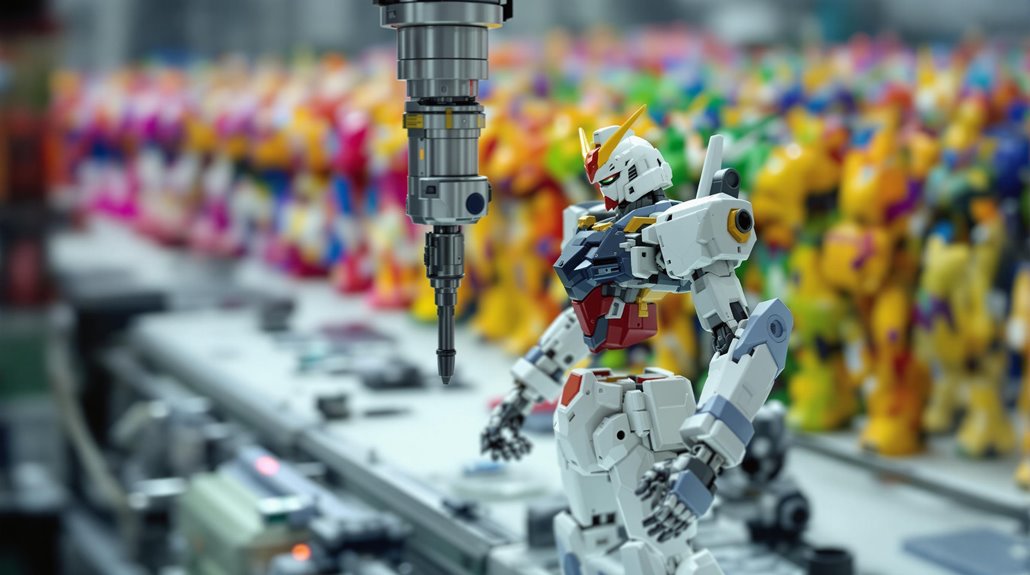
Innovative manufacturing techniques revolutionized how Bandai crafted action figures in the toy industry. By plunging into die-casting and injection molding processes, they've created incredibly detailed and articulated figures that stand out in the market.
You'll find Bandai's competence in working with diverse materials like plastic, metal, and rubber has enabled them to produce action figures with exceptional durability and poseability. Their famous product lines, including Chogokin and Robot Spirits, showcase their commitment to engineering excellence and precise scaling.
Their close partnerships with anime creators have helped them accurately convert beloved characters into three-dimensional figures. Through strategic licensing deals with franchises like Gundam and Power Rangers, they've established themselves as the go-to manufacturer for high-quality collectible action figures worldwide.
The Power Rangers Phenomenon
When Power Rangers burst onto television screens in the 1990s, Bandai quickly established itself as the franchise's premier toymaker, dominating the action figure market for nearly three decades. During this incredible run, you'd find Bandai's extensive line of Power Rangers merchandise filling toy aisles everywhere, from action figures to vehicles and playsets.
The partnership proved remarkably successful, generating over $5 billion in retail sales and becoming one of Bandai's most iconic toy licenses. Even though Hasbro acquired the rights in 2019, ending Bandai's nearly 30-year relationship with the franchise, you can't separate Bandai's legacy from Power Rangers. The company's long-standing commitment to producing quality Power Rangers toys has forever cemented its place in the franchise's history, making it synonymous with the brand's explosive success in the toy industry.
Bandai's Role in Anime Industry Growth
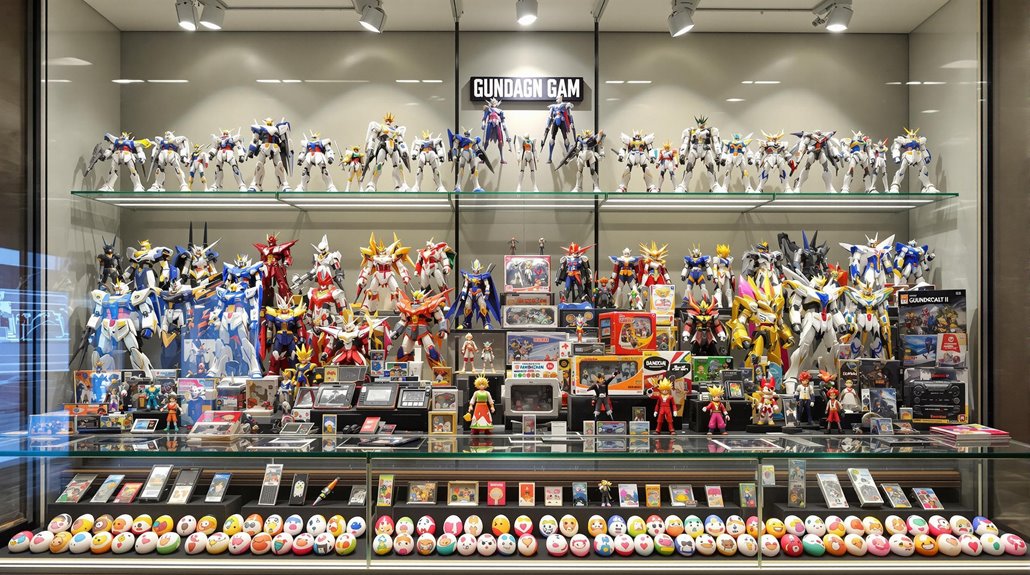
Since establishing itself as a major force in the late 1970s, Bandai has played an essential role in shaping the global anime industry through strategic investments and merchandising. You'll find Bandai's influence across all aspects of anime production, from creating content to selling products that bring your favorite characters to life.
Through its ownership of Sunrise animation studio from 1994 to 2005, Bandai brought iconic series like Mobile Suit Gundam to audiences worldwide. The company's impressive portfolio of anime licenses, including popular franchises like Kamen Rider, has allowed it to dominate the Japanese toy and collectibles market.
You can see this success in action through their highly sought-after product lines like Robot Spirits and Digimon, which have helped drive anime merchandising to new heights and solidified Bandai's position as an industry leader.
Mergers and Corporate Milestones
Throughout its corporate history, Bandai's most significant milestone came in 2005 with its successful merger with Namco, creating one of the world's largest gaming and toy companies. The establishment of Bandai Namco Group altered the company into a major game developer and amusement powerhouse.
You might be surprised to learn that Bandai nearly took a different path in 1997 when it announced a $1 billion merger with Sega. However, this deal fell through due to strong opposition from Bandai employees, leading to President Makoto Yamashina's resignation. That same year, Bandai suffered a ¥9 billion loss from declining game sales and the unsuccessful Apple Pippin launch. Regarding reorganization, the company opted for a strategic business alliance with Sega instead.
Today, the Toys and Hobby subsidiary of Bandai Namco continues to thrive as a global entertainment leader.

